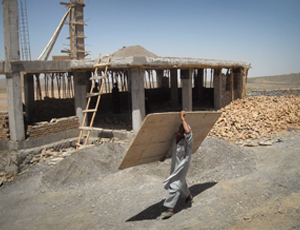As the U.S. government prepares to ramp down military operations in Afghanistan, a new congressional report warns that the billions of dollars being spent in financial aid to the war-torn nation are achieving achieving limited success and calls for more scrutiny on the types of projects, including reconstruction projects, that are funded.

The congressional report concludes that, going forward, any projects should be “necessary, achievable and sustainable.”
Released on June 8 by Democrats on the Senate Foreign Relations Committee, the report does not focus exclusively on the reconstruction effort but looks at the entire civilian effort to stabilize and rebuild Afghanistan. The Senate investigation dovetails with recent critical reports from the Special Inspector General for Afghanistan Reconstruction (SIGAR) and the Wartime Contracting Commission. Common themes are mismanaged contracts in Afghanistan and ingrained corruption and waste in the country.
“This report is meant to be constructive,” said committee Chairman John Kerry (D-Mass.). “It is a report with critical observations,” but those observations are made “with the best spirit of joint cooperation,” he said.
According to SIGAR, Congress has provided more than $17.3 billion to rebuild Afghanistan since 2002, and the president has asked for an additional $17.3 billion for fiscal 2012.
However, the Senate Foreign Relations Committee report urges the administration to think carefully about how to allocate aid dollars.
“Spending aid effectively in Afghanistan is extremely challenging, given the security climate, abject poverty, weak indigenous capacity, widespread corruption and poor governance,” the report’s authors say. They go on to make a distinction: “Afghanistan is not Iraq.”
The Senate report also cites the admission by Morristown, N.J.-based Louis Berger Group earlier this year that it had overbilled the U.S. government more than $10 million in fees. The Berger case is a prime example of the need for better oversight of federal contractors.
The overarching theme of the congressional report, as well as other studies has been the need for the federal government to ensure projects are able to stand on their own feet after the U.S. military exits.
"The Senate Foreign Relations Committee rightly highlights sustainability as a key issue in Afghanistan, which is something that SIGAR has been focusing on for some time," says the acting Inspector General for Afghanistan Reconstruction, Herbert Richardson.


Post a comment to this article
Report Abusive Comment